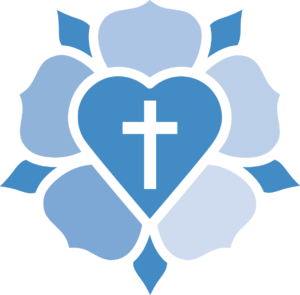 It is for freedom that Christ has set us free. Stand firm, then, and do not let yourselves be burdened again by a yoke of slavery. (Gl 5:1)
It is for freedom that Christ has set us free. Stand firm, then, and do not let yourselves be burdened again by a yoke of slavery. (Gl 5:1)
The members, voluntary helpers, workers and clergy of the Estonian Evangelical Lutheran Church have assembled in Tartu for the Jubilee Congress on 26 and 27 May 2017. We have dedicated the years 2017 and 2018 to the topic “Landmarks of Freedom” to remember and celebrate the anniversaries of momentous events that have influenced Estonian people and the 800 years of Christianity in this land: 500 years from the Lutheran Reformation and 100 years from the birth of the Estonian Evangelical Lutheran Church and the Republic of Estonia.
In 1917, we initiated the process of transforming our evangelical Lutheran church into a free people’s church. The Church Congress of representatives of Estonian congregations was held in Tartu in the spring of the same year. For the first time in history, delegates from congregations assembled to make democratic decisions about the future of their church. The Congress completed the first reading of the statutes of the church and adopted a declaration consisting of five statements. The first statement proclaimed that the Estonian Lutheran church is a free people’s church at home and abroad. This declaration is the birth certificate of the Estonian Evangelical Lutheran Church.
The EELC was created as a free people’s church with an episcopal-synodal polity. The church was liberated from the state’s custody and former state-appointed functions, and started to work as a people’s church. Church membership became voluntary. The core of the free people’s church comprised the members of the church, liberated by the gospel, who bore a shared responsibility for the future of their church. Through a shared witness to the gospel in life, word and deed, they contributed to doing God’s will in our society.
Statement of the Church Congress
1. The church is for all Estonian people.
The free people’s church is a free and public church in the gospel. Like our predecessors at the time of founding the free people’s church, the Estonian Evangelical Lutheran Church, celebrating its 100th anniversary, carries out a mission, which originates from and centres on the gospel of crucified and resurrected Jesus Christ. This gospel liberates and comforts us, encourages us and brings us joy. We see the gospel as the source of the church’s public identity and, therefore, we emphasise the missionary and ministerial orientation of the church to serve the community, all people of Estonia, and the entire humanity reconciled through the cross of Christ.
2. The church bears a shared responsibility for Estonian people and culture.
The free people’s church relies on shared public responsibility of all members. The church is one of the pillars of our identity and community and a carrier of education and cultural heritage. Our shared task of proclamation and ministry is directed to the community as a whole – people in urban and rural areas. The church constitutes a living bond between the gospel, our history and the present day. In this way, we are also involved in the preservation and development of Estonian language and culture. We consider it important to participate in social debates about the future of Estonian people and the long-term goals and values of our society.
3. The church participates in social discussions on religion and worldviews.
The free people’s church differentiates between communal life based on faith and conscience and the societal political matters. As the free people’s church, we live in a society of diverse worldviews and religions. Any attempts to ignore the significance and social impact of various guiding beliefs, or to regard them as a merely private matter, have proven to be short-sighted. It is important to bear public witness to religious and worldview convictions and to hold discussions about and between them. As the free people’s church, our mission is to profess and interpret Christian faith in a public dialogue.
4. The church serves society through social ministry and pastoral care.
The free people’s church has social responsibility. The church as a communion of believers is centred around the worship service – our appeal to the shared and public gospel in word and sacrament. Our communion is based on the renewing and reconciling power of God’s love. It encourages us to look at the surrounding creation and all fellow human beings through eyes of love and, in particular, to notice, comfort and support those who are weak, ailing, in distress or excluded. The church must help them make their voice heard. Speaking up for social justice, peace and care for creation is a part of what it means to be a church and to be a Christian.
5. Our church is a part of the Church of Jesus Christ
The Estonian free people’s church is in communion with and works together with other Christian churches in Estonia, Europe and the entire world. Our church is a member of several church communions, characterised by full mutual recognition, and has established close bilateral relations with a number of sister churches. We attach great importance to ecumenical cooperation with other churches in Estonia and in the world. Joint witness and ministry provides an opportunity and an essential responsibility to participate in the development of our shared European and global living environment.
Christian faith and church are based on the faithfulness, presence and action of the Triune God as revealed in the gospel. In this thankful confidence and trust, we at the Church Congress of the jubilee year look to the future with courage and calmness of heart. We pray for wisdom to help us live, confess and serve as Estonian free people’s church in a manner that gives praise to the Triune God and serves the good of our fellow human beings and the entire creation.
St. Paul’s Church, Tartu, on 27 May 2017




